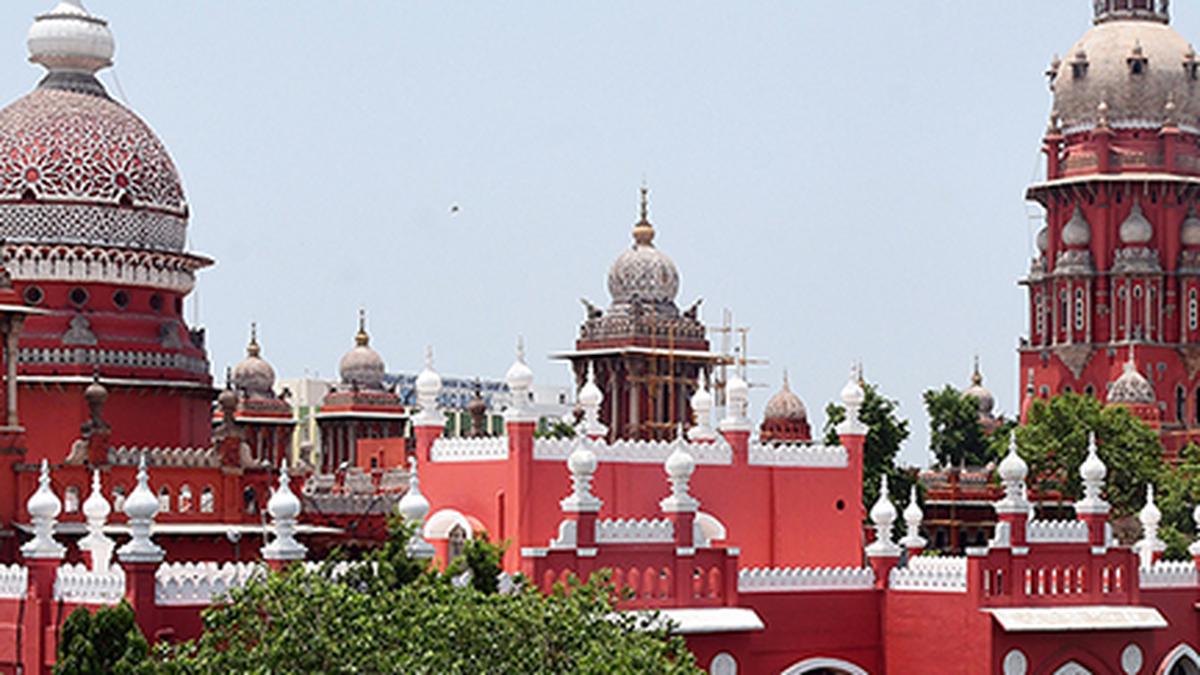
Town and Country Planning Act cannot be invoked to prevent private landowners from constructing buildings, rules Madras High Court
The Hindu
Madras High Court rules Tamil Nadu government cannot prevent private land development without compensation, citing lack of legal authority.
The Tamil Nadu Town and Country Planning (TTCP) Act, 1971 does not empower the State government to prevent private land owners from constructing buildings on their immovable properties by declaring them to be under ‘no development zones.’ The government could only acquire such lands if they were required for any public purpose, such as maintaining the catchment area of a lake, the Madras High Court has ruled.
Justices S.S. Sundar and N. Senthilkumar held so while declaring as unconstitutional and illegal the classification of 13,720 hectares of land spread over 27 villages near Red Hills lake as a ‘catchment area’ and therefore a ‘no development zone’ under the second master plan developed for Chennai Metropolitan area in 2008. They said, the government could not compel the landowners to do only agriculture on those lands.
Disposing of a couple of writ petitions, the Bench pointed out that the TTCP Act does not contain any specific provision empowering the government to prohibit development on private lands without acquiring them on payment of compensation. Though the State argued that it could impose such prohibition in exercise of its police power, the Bench said: “The source of power to legislate on town planning, is not a police power.”
The judges also rejected the State’s argument that the prohibition imposed on constructing buildings in no development zones was similar to the prohibition imposed in coastal regulatory zones (CRZ) and near archaeological sites. They said, the object behind the legislations governing CRZ and archaeological sites as well as the source of power for enacting such laws were entirely different from the ones related to town planning.
Though right to property was no more a fundamental right because of the deletion of Article 19(1)(f) from the Constitution, the right guaranteed under Article 300A (no person shall be deprived of his property save by authority of law) had been recognised as a human right too. Therefore, no person could be deprived of such a right, by way of a law or an executive decision, without any application of mind or a scientific basis, the Bench said.
In so far as the present case was concerned, neither the State government nor the Chennai Metropolitan Development Authority (CMDA) had conducted any scientific study before classifying the 13,720 hectares of land as catchment area in 2008. The CMDA had recently filed an additional counter affidavit in the court stating that it was only in 2022 a decision was taken to have a relook at the classification after undertaking a scientific study.
The Centre for Urbanisation, Building and Environment (CUBE) at the Indian Institute of Technology-Madras Research Park was appointed as consultant to study the ‘Impact on Urbanization of Red Hills Catchment Area and Measures for its Conservation and Protection from Urbanization.’ The consultant had filed its interim report in December 2023 and the government was awaiting the final report before reconsidering the classification.

“Writing, in general, is a very solitary process,” says Yauvanika Chopra, Associate Director at The New India Foundation (NIF), which, earlier this year, announced the 12th edition of its NIF Book Fellowships for research and scholarship about Indian history after Independence. While authors, in general, are built for it, it can still get very lonely, says Chopra, pointing out that the fellowship’s community support is as valuable as the monetary benefits it offers. “There is a solid community of NIF fellows, trustees, language experts, jury members, all of whom are incredibly competent,” she says. “They really help make authors feel supported from manuscript to publication, so you never feel like you’re struggling through isolation.”

Several principals of government and private schools in Delhi on Tuesday said the Directorate of Education (DoE) circular from a day earlier, directing schools to conduct classes in ‘hybrid’ mode, had caused confusion regarding day-to-day operations as they did not know how many students would return to school from Wednesday and how would teachers instruct in two modes — online and in person — at once. The DoE circular on Monday had also stated that the option to “exercise online mode of education, wherever available, shall vest with the students and their guardians”. Several schoolteachers also expressed confusion regarding the DoE order. A government schoolteacher said he was unsure of how to cope with the resumption of physical classes, given that the order directing government offices to ensure that 50% of the employees work from home is still in place. On Monday, the Commission for Air Quality Management in the National Capital Region and Adjoining Areas (CAQM) had, on the orders of the Supreme Court, directed schools in Delhi-NCR to shift classes to the hybrid mode, following which the DoE had issued the circular. The court had urged the Centre’s pollution watchdog to consider restarting physical classes due to many students missing out on the mid-day meals and lacking the necessary means to attend classes online. The CAQM had, on November 20, asked schools in Delhi-NCR to shift to the online mode of teaching.









